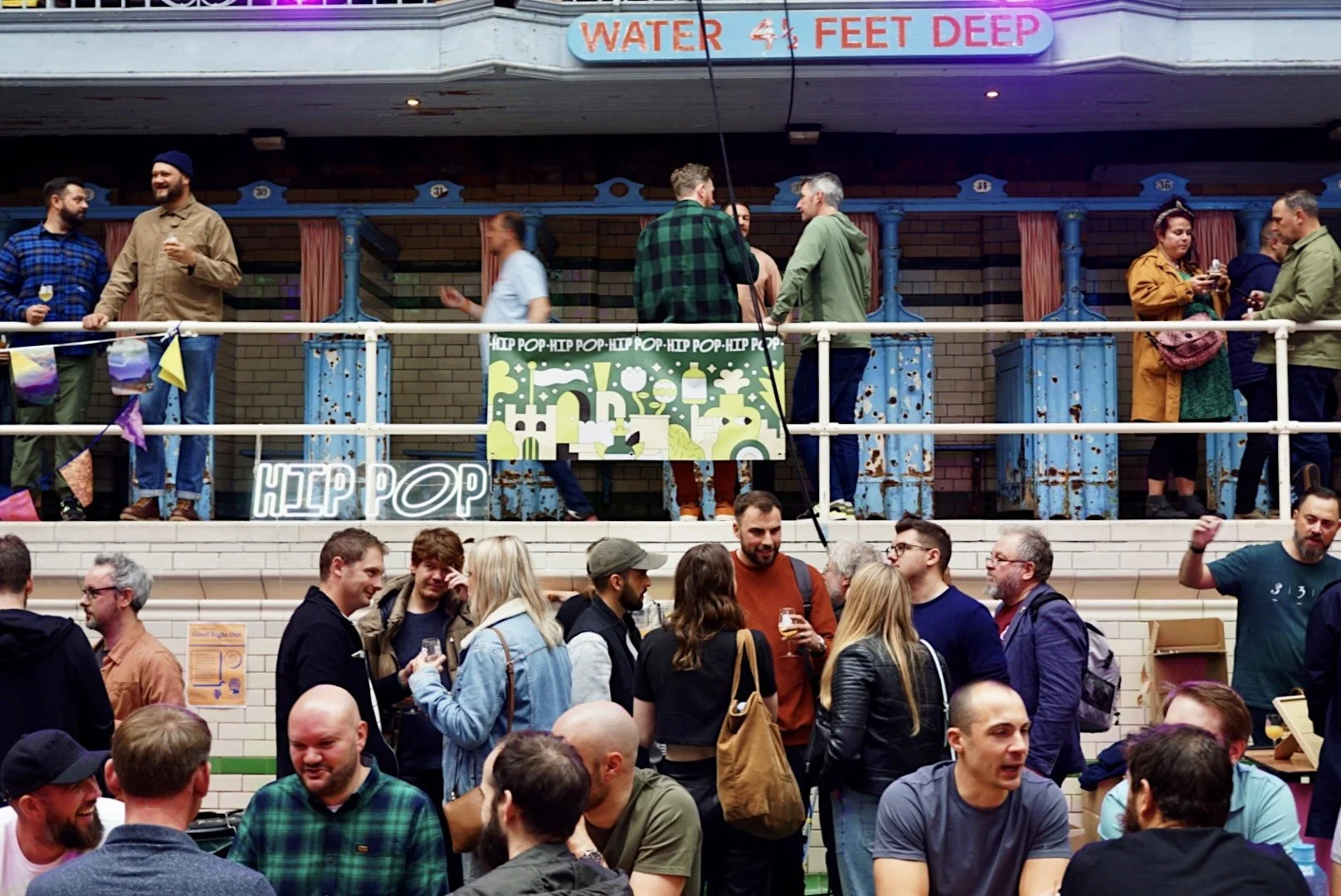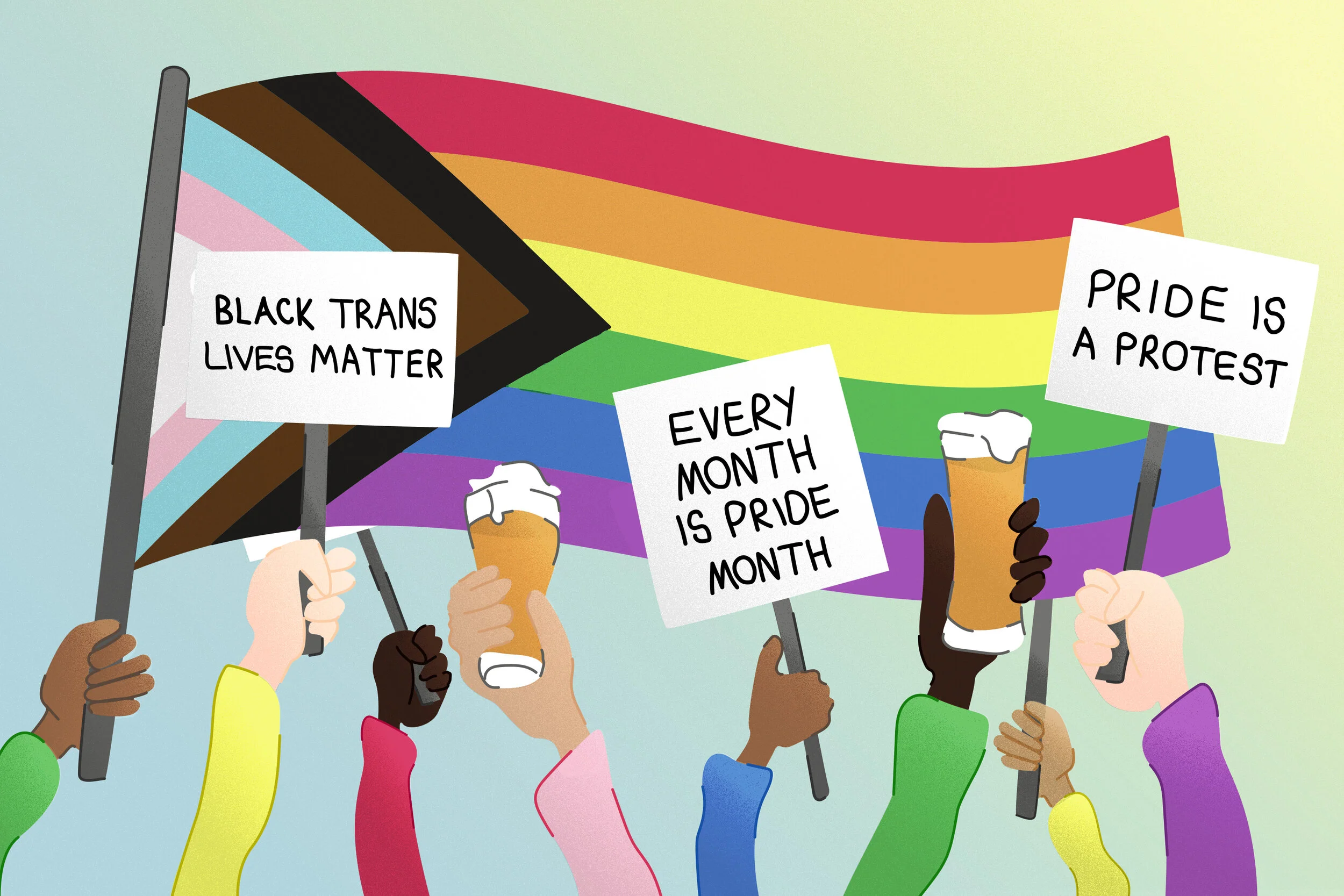Same As It Ever Was — On Class, Exceptionalism and Craft Beer
Inside my favourite record store in Southern California—Moldy Toes of San Clemente—there are stacks of records packed together in old milk crates and plastic bins. These are separated haphazardly by plastic dividers with genres boldly scrawled, often barely peeking over the top of a heavy lean of vinyl. As you peruse through the single-room shop you are met with a familiar smell, a scent somewhere between an old library and a dusty piano, only there are no books and definitely no space for a baby grand amongst the narrow aisles.
I consider the way in which we organise our music, where it’s sold, and who has access to buying it, has so much in common with beer, and how we enjoy the beverage in its various forms. Music has a long history of fans arguing about what qualifies to be in various genres, and the same goes for beer nerds.
If you walk into a taproom some 5,000 miles away from that San Clemente record shop in my current home city of Belfast, you will undoubtedly hear the more zealous craft enthusiasts having it out over a pint. The merits of a stout over a porter, a debate over dry hopping rates, or perhaps the ideal serving temperature of a beloved crispy lager. These conversations happen in online spaces too, the back and forths, countless books dedicated to the art of categorising and classifying our favourite art forms, and foodstuffs.
As much as this categorisation of beer has enabled brewers like myself to hone their craft, there is a problematic side to all this nitpicking. I would argue such a slippery slope of exceptionalist thinking and gatekeeping embodies one of the biggest issues in the beer industry: who belongs here?
The language around determining who has access in a curated space such as a taproom has implications across culture, socioeconomic status and gender. It’s a carefully coded, quietly classist practice of making people feel as though they do or don’t belong.
““Most of the field workers I’ve known haven’t been within 100 feet of a craft beer taproom. Why is that?””
To draw another parallel between music and beer, nearly every woman who is into punk will have a story of a grown man coming up to her when she was a teen to ask her if she really knew any music from that band on her shirt, or better yet, tell him three songs. The same thing happens when our industry enters into endless critiques of style guidelines, and I would argue a beer style like saison provides the perfect example of this kind of endless critique.
Historically, saison was considered as a beer for field workers using local farmed ingredients, brewed in the winter for summer consumption, and most importantly, low ABV. The defining feature of this beer in a tasting panel is the spicy, tangy yeast character. Now there’s a panel of 300 judges at the Great American Beer Festival (GABF) to tell you which Saison is the best version of the style. That’s ludicrous, in my opinion. The labour historian and anthropologist in me would honestly rather line up 300 field workers and have them rate my saison, but most of the field workers I’ve known haven’t been within 100 feet of a craft beer taproom. Why is that?
The neverending impromptu pop quiz from the older, wealthier white man who has more knowledge and will grill you at the drop of a hat still has me on edge, and now I see it in modern beer spaces. I’ve spoken to many other working-class people who feel the same. It's a ritual of gatekeeping and wealthy white men aren’t the only ones to do it.
Illustrations by Jessica Wild
I’ve watched women replicate this as well in an effort to emphasise that yes, they’ve passed the test and they will be subjecting women to it as well. We aren’t like “other girls,” we drink beer, do you? And how well do you drink beer? Stone Brewing of San Diego’s campaign against “fizzy yellow beer” which I found funny in my own “pick me” era of my early 20’s now has me cringing.
You may be thinking: “Okay, I see the gatekeeping, but how is this classist?” As with all niche products, it has a great deal to do with time and access.
The older man in IT with more free time and a greater level of disposable income might have countless bottles of beer ranging from the Duchesse de Bourgogne, to a long sought-after New England IPA. He will have more time and money to spend curating a palate he can promenade around the next beer festival to impress other people with a similar passion for fine beer. But when does the passion for a local product ooze over into the territory of a classist snob?
““Within beer ‘macro’ has become synonymous with the uneducated and unrefined palate, and ‘craft’ is for the university educated, Carhartt appropriating hipster taste buds.””
The industry is built around judging, competitions, events and entire conventions established to determine not just the quality of the beer, but (according to the abilities and opinions of the judges) how well a certain beer meets the criteria of “best in category X.”
There has been massive pushback from the workers in fine dining against the Michelin star process and the abusive work conditions that enable and fuel the journey from kitchen to table. I argue it may be time for a similar awakening in beer.
We are potentially on a slippery slope of exclusion and exceptionalism that is being enabled by people who are focused on building reputations built on marketing, hype beer, and the extreme hero worship of both legendary head brewers and “beer experts”. The awards, the accolades and the influencer culture surrounding beer are not inherently problematic on their own, but as we examine the impact on real people and the demographics of taprooms we can conclude that there are unintended consequences as we strive for elitism in an industry whose main product is a foodstuff that was originally made and consumed by the working class.
Dietician and advocate, Anjali Prasertong defines food gentrification for us as a phenomenon that: “reframes a food that is an affordable, familiar form of sustenance for members of a particular culture into an often unrecognisable form that is elevated, carefully sourced, reinvented, healthier—take your pick of adjectives that connote the original is cheap, unhealthy, trashy food.”
Within beer “macro” has become synonymous with the uneducated and unrefined palate, and “craft” is for the university-educated, Carhartt-appropriating hipster taste buds. This isn’t an unfair dig at people in tiny beanies (but seriously none of us blue-collar workers can actually afford industrial workwear anymore). Still, I do think as an industry, unfair price markups, and taprooms filled with mostly middle-upper-class folks aren't an accident. It’s a byproduct of a scene hyper-fixated on image and pretending we’ve reinvented the wheel.
As you finish your perusal of that record store in San Clemente, you’ll bring your refound treasures near the front desk to pay the cashier. The gentle lilt of John Coltrane’s saxophone will give way to Leadbelly’s deep warble reminding you that despite his accolades, John Fogerty didn’t know shit about living in a bourgeoisie town, nor did he invent the blues. And I’ll ask the nearest white guy in a Led Zeppelin shirt if he knows who Memphis Minnie is.
















